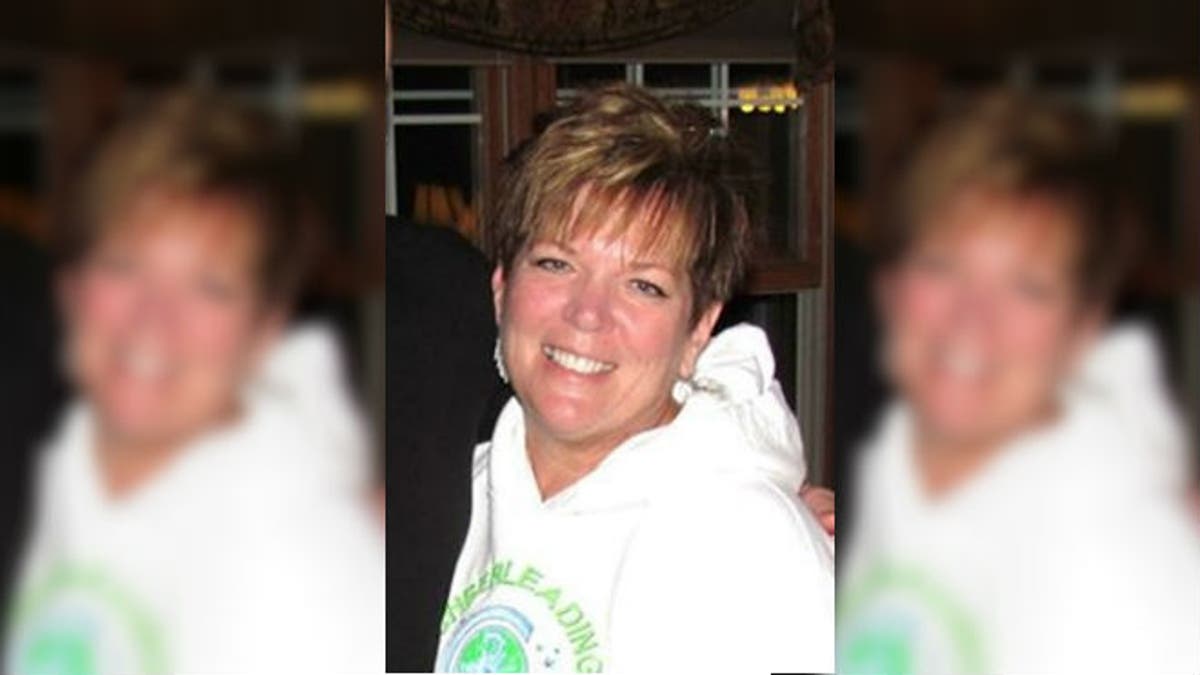
This undated photo provided by Randy Budd shows his wife, Sharon Budd, a middle school language arts teacher. (AP Photo/Randy Budd)
Doctors had a simple goal when they first saw how a football-size rock thrown from an interstate overpass in Pennsylvania had shattered Sharon Budd's skull - to keep her alive.
After nearly two weeks, including a surgery lasting more than 13 hours that involved removing damaged parts of her brain, they are cautiously optimistic.
Screws, bolts and plates now hold together the face of the seventh-grade teacher from Uniontown, Ohio, who was left with a large, gaping wound across her forehead and broken bones when she was struck on July 10.
That's when police say four teenagers - three now charged as adults, one as a juvenile - decided to throw rocks from an Interstate 80 overpass as Budd, her husband and a daughter happened to be passing through central Pennsylvania on their way to see a show in New York.
That first night, surgeons at Geisinger Medical Center did what they could to clean out pieces of her skull that were jutting into her brain. They also removed parts of her intact skull to allow for the swelling they knew would soon follow.
"We had to make sure that she was going to survive, that was our immediate goal for the first 72 hours," Dr. Atom Sarkar, her neurosurgeon, said Monday.
The damage destroyed barriers the skull forms that make separate compartments needed to avoid infection of the brain from the nose and mouth.
Doctors also had to use a piece of her skull to fabricate a bridge between her eyes.
Kaylee Budd, one of the Budds' four children, was driving when the rock crashed through the front windshield of their Nissan Rogue.
The college sophomore stopped and turned on the light to see her 52-year-old mother had suffered horrifying injuries. From some 20 feet above, the rock apparently struck Sharon Budd directly on the forehead.
It hit like an explosion, said Randy Budd, who described the injuries as so gruesome that he wasn't sure what he was seeing - blood and possibly brain matter amid shattered glass.
Waiting for help, Kaylee and Randy held Sharon's hands, prayed, did what they could to reassure her and tried to prevent her from rubbing her head wound.
At the hospital, a physician braced Randy Budd for the worst, saying she was perilously close to death and advising him to call loved ones.
"Two gentlemen came up and said: `We're going to do an emergency surgery. Give her a chance to live.' I just signed. Some eye doctors came in and basically said the same thing. I signed," Randy Budd said.
It took her about a week to recuperate enough for ear, nose and throat surgeons to perform more comprehensive work on her face.
It was during that follow-up surgery on Thursday that doctors realized damage to the right frontal lobe of her brain and some parts of the left were likely to continue giving her problems and needed to be removed.
The frontal lobe helps determine personality, a particularly bitter fate for Sharon, a woman with a wide network of friends and a devotion to her career as a language arts teacher.
"That part of the brain actually affects your social interactivity, how she is as a person, if she's warm and compassionate, or bubbly and ebullient, or just quiet and reserved," Sarkar said. "That doesn't mean that she can't be the person she was."
Her arms and legs appear to be moving appropriately, but doctors don't know how her dexterity and fine motor control will be affected. It is likely she has permanently lost the use of her right eye.
A tube in her brain was removed Monday, and although she is somewhat sedated, she has been able to follow her doctors' commands, mostly shaking her head or wiggling her fingers and toes, Randy Budd said Tuesday.
Doctors hope to perform additional skull reconstruction, and at some point remove the hardware. The scar from the rock runs from her right ear across her forehead; the one from the procedure to remove portions of her skull goes across the top of her head, from ear to ear.
Now they wait to see how she progresses.
"We can say she's not going to die," Sarkar said, "but there's a very far gulf between not dying and being the person you were."
